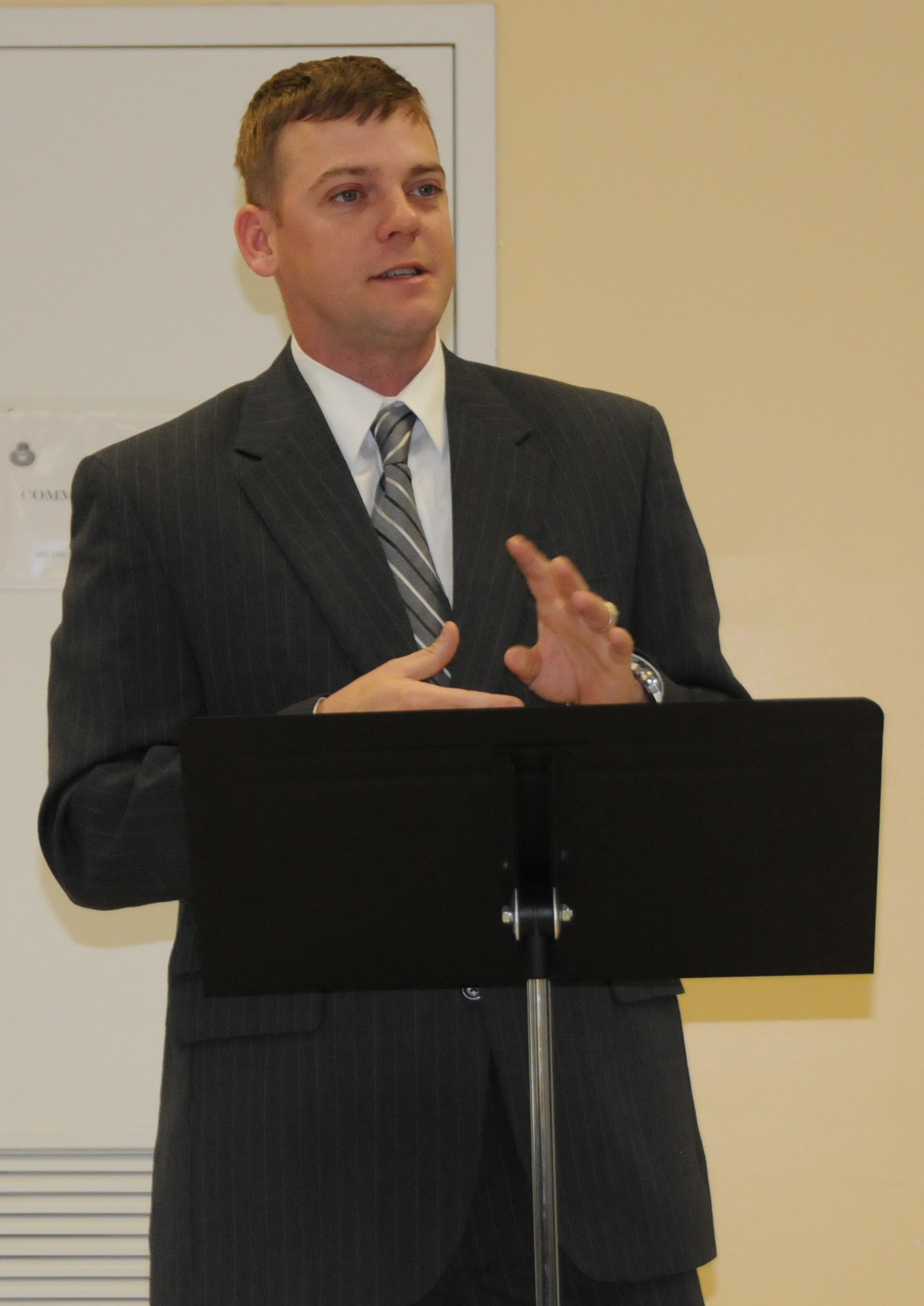FORT RUCKER, Ala. -- Family Advocacy Program's Lunch and Learn series aims to help prevent sexual assault, but if such an incident does occur, Criminal Investigation Division personnel described the investigation process after an attack.
Special agent Michael Potter said during the series April 21 at the Chapel of Wings annex that sexual assault investigations are CID's top priority as the Army seeks to stamp out the crime.
In 2007, a new Uniform Code of Military Justice aided in the effort, creating assault and abuse subcategories that more properly and thoroughly describe certain crimes, he said.
The new categories give investigators and Staff Judge Advocate personnel more flexibility in prosecution since they can file more accurate charges, he noted.
CID agents cannot begin an investigation until a victim comes forward and initiates an unrestricted report. Victims can opt for restricted reports and receive counseling and medical attention.
Restricted reports can be made to unit victim advocates, health care professionals, the post's sexual assault response coordinator or chaplains. When victims report to these personnel, the interviewers first ask if victims want to file unrestricted or restricted reports, a FAP member said.
If a victim determines he or she wants a criminal investigation, or unrestricted report, CID agents ask initial interviewers to stop and call CID. CID then aids in the process, ensuring victims do not relive the trauma multiple times, Potter said.
"True victims will block out (some elements). A true victim wants to put it behind them," he said.
Once CID is involved, "we are obligated to investigate," Potter said. CID agents interview everyone who might have witnessed anything related to the reported incident to ensure the right charges, if any, are filed.
Other factors come into play, especially in alcohol-related assaults.
"The level of intoxication also comes into play. How much have they had to drink' How much do they normally drink' Are they coherent' At this level, could they give consent'" said Michael Davis, another CID agent.
Even though these questions are answered, the basic sexual assault definition remains the same.
"As soon as any individual, male or female, doesn't want to (have sex) and makes that known, then that's not consent," Davis said.
Once CID agents complete their investigations, details are forwarded to local and regional SJA sexual assault experts. Each Army region has one prosecutor who specializes in sexual assaults, and for the Southeast region, that person is located at Fort Benning, Ga., Potter said.
SJA officials then meet with battalion commanders and advise them of what types of punishments are available or recommended, Davis and Potter said.
To report a sexual assault to CID, call 255-3108, or if on another installation, visit <a href="http://www.cid.army.mil/units_conus.html" target="_blank">www.cid.army.mil/units_conus.html</a> to find contact information there.
CID agents present unit briefings upon request. Commanders can schedule those by calling the CID office or Potter at 255-0588.


Social Sharing